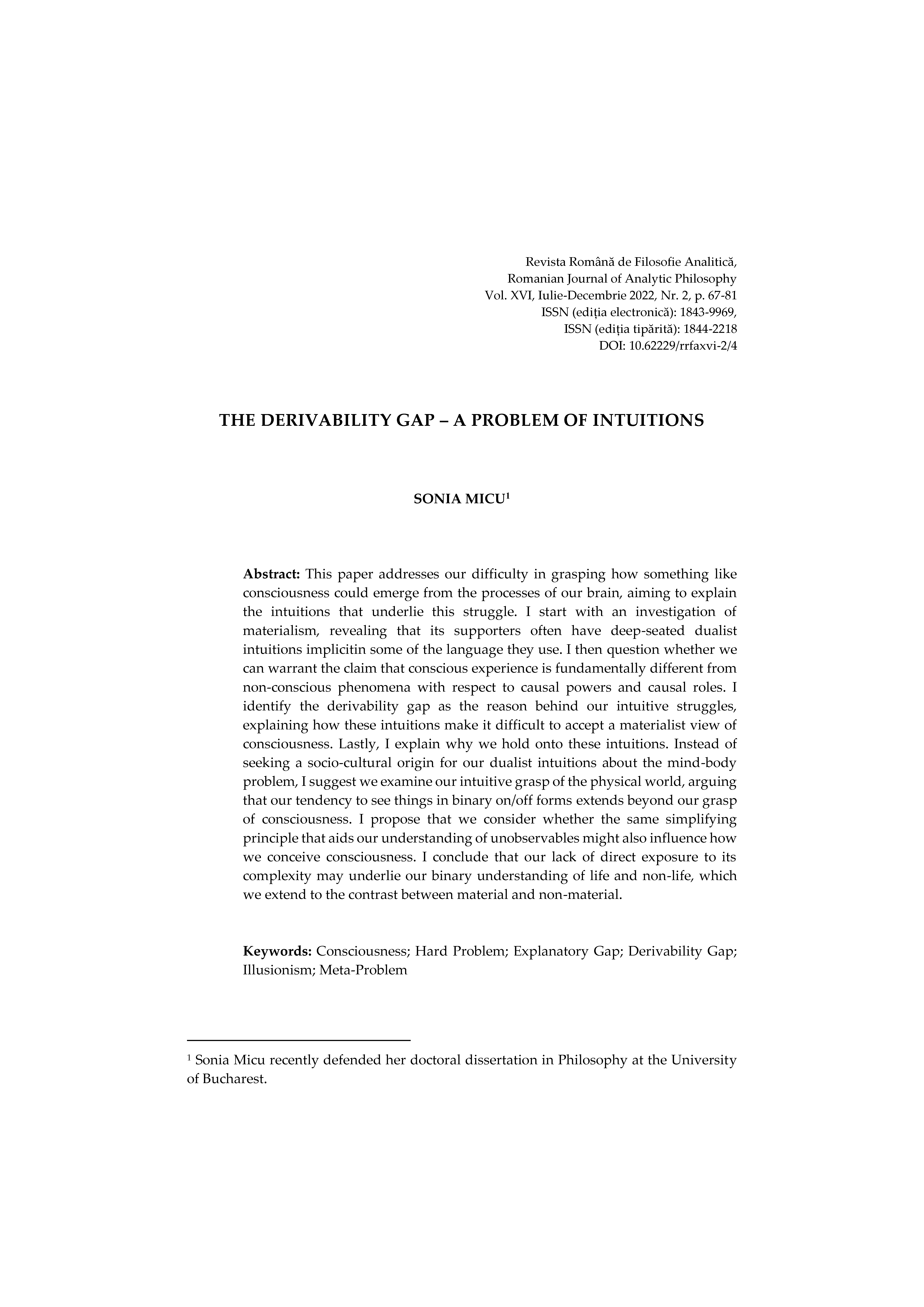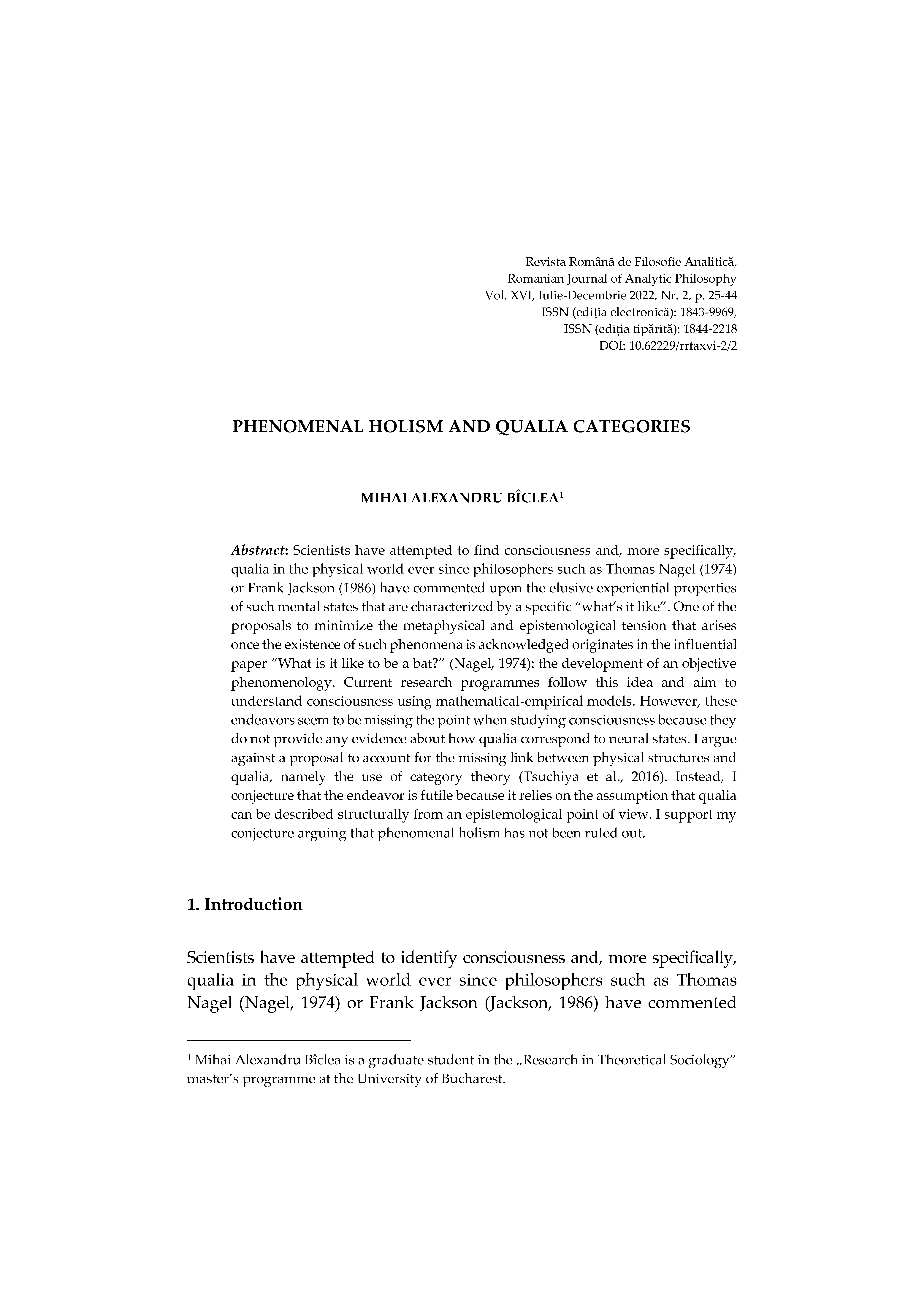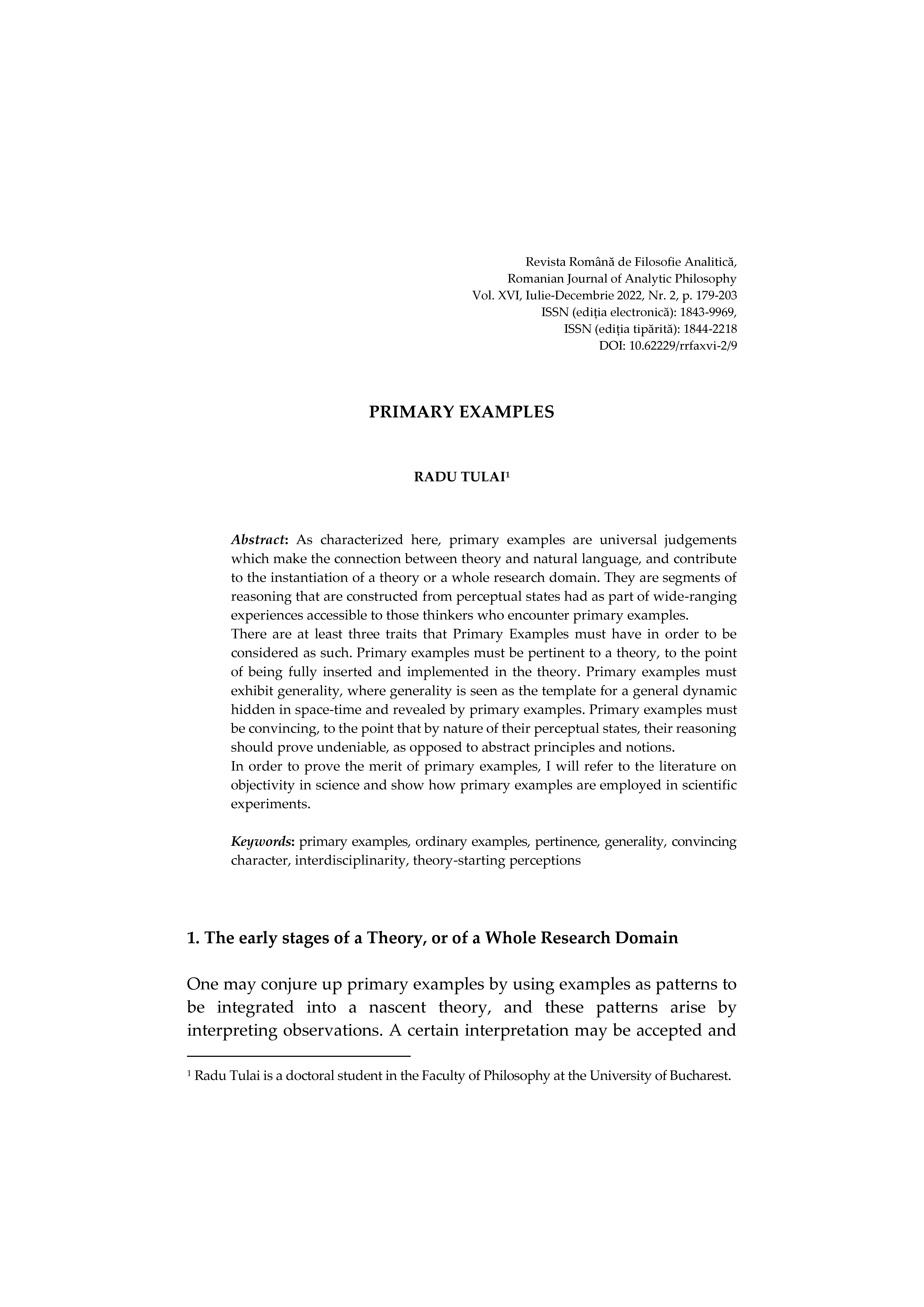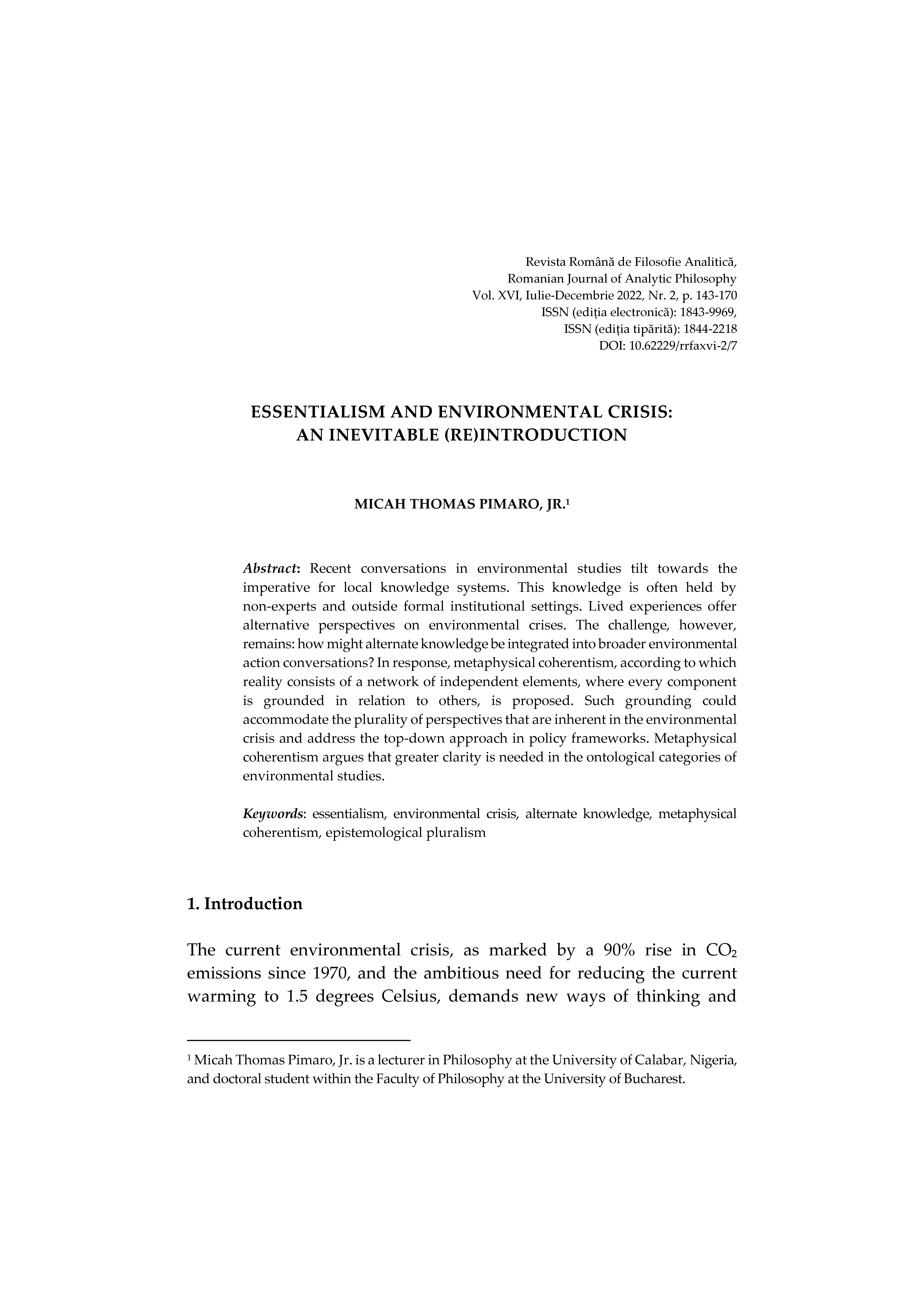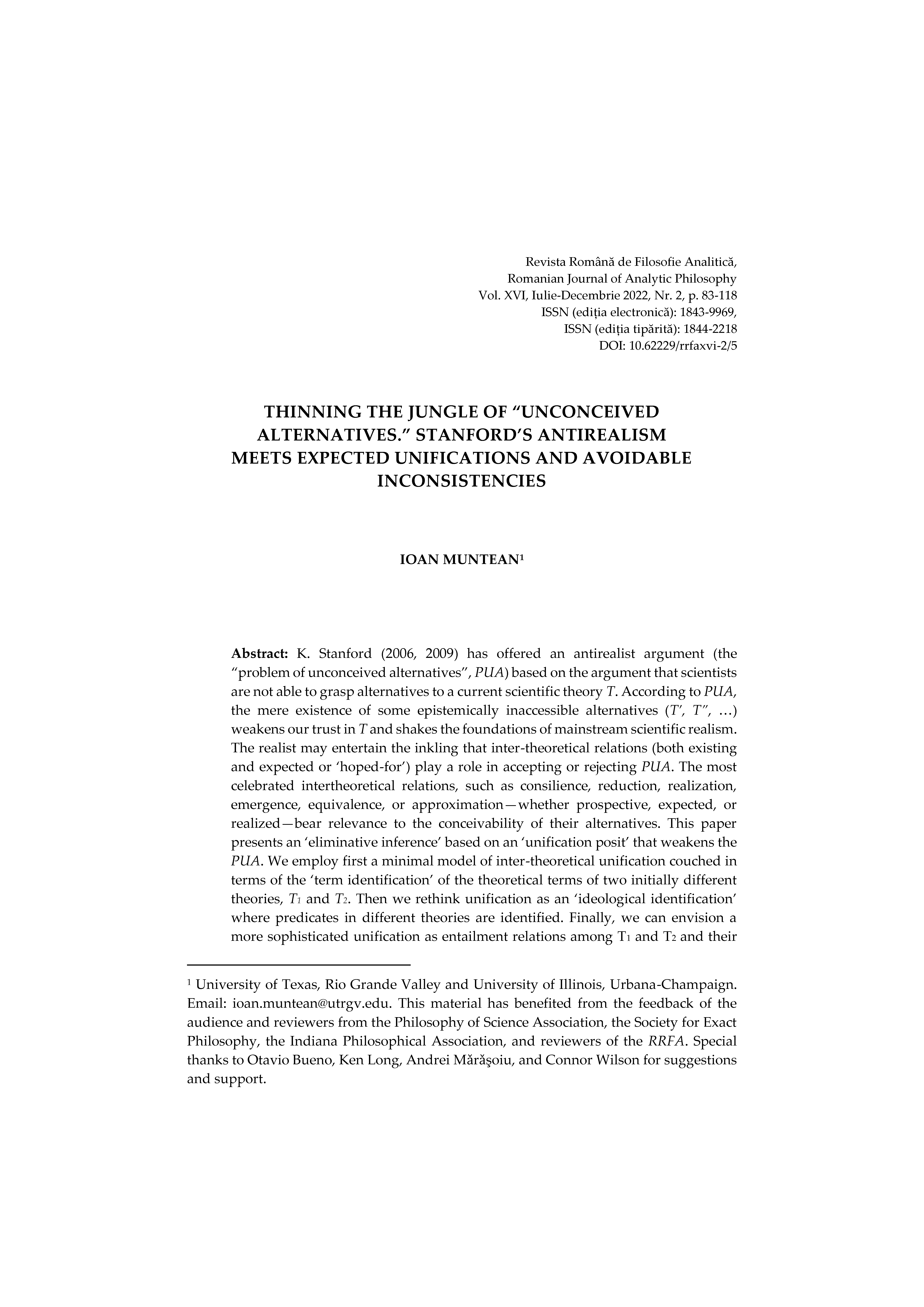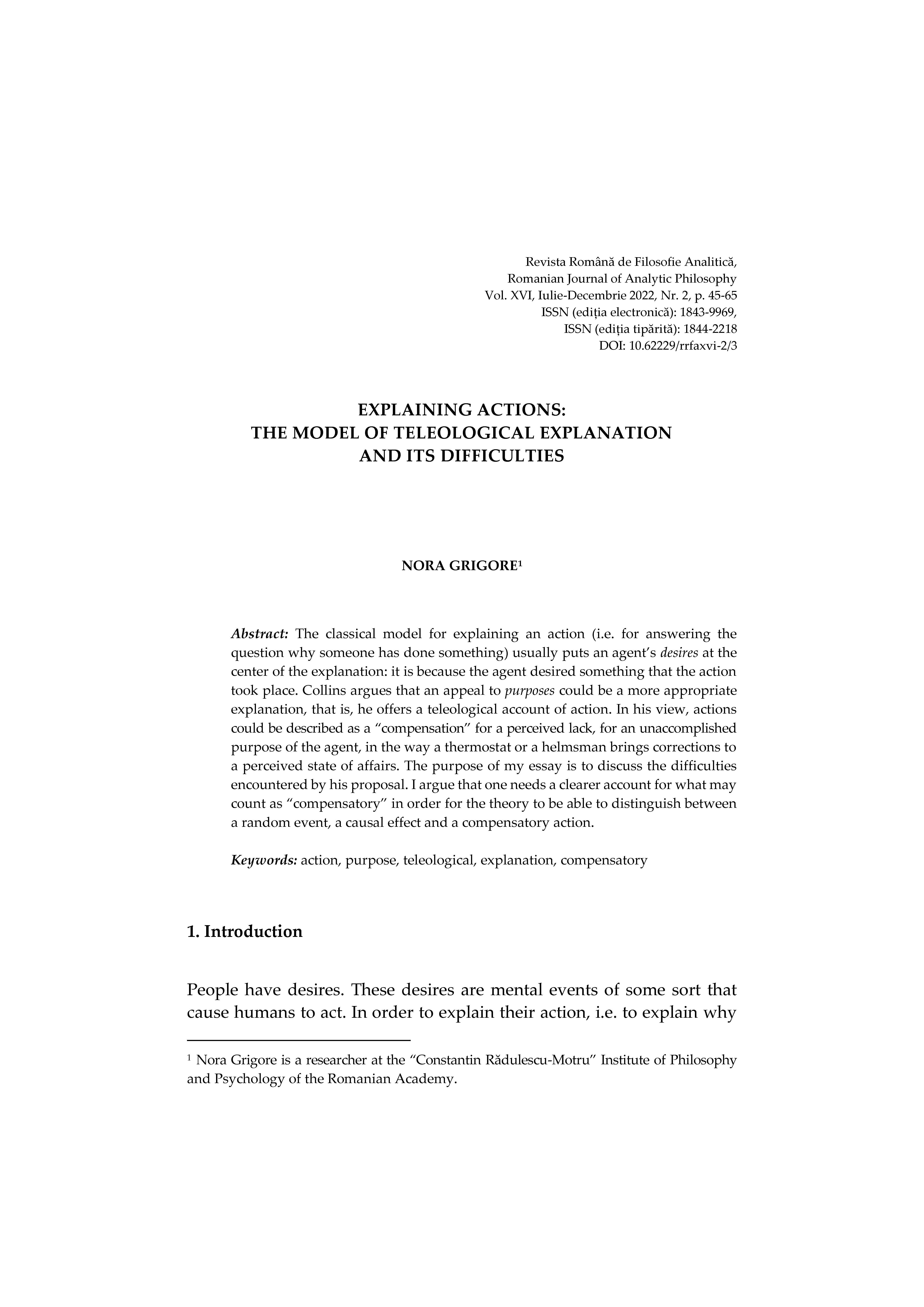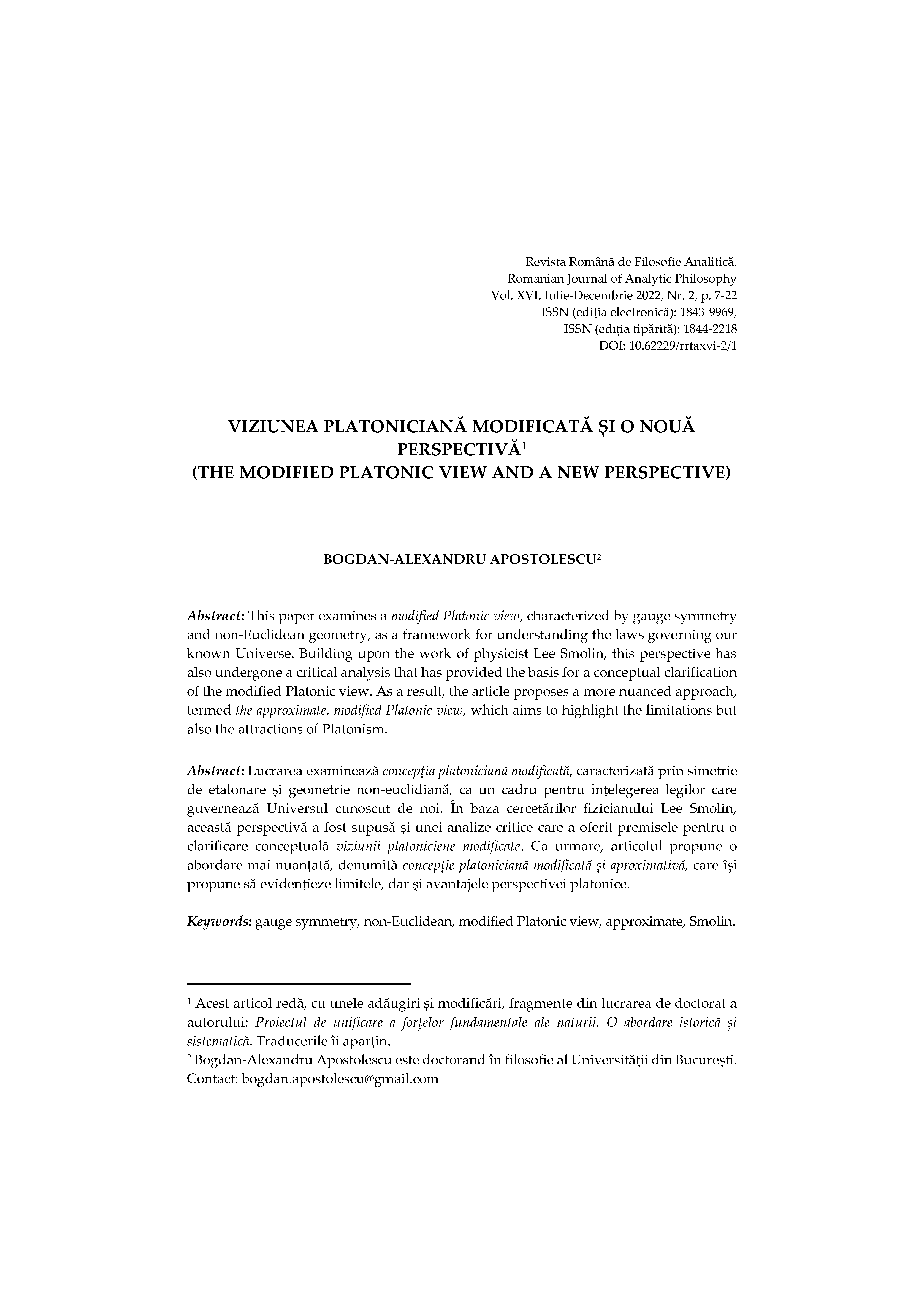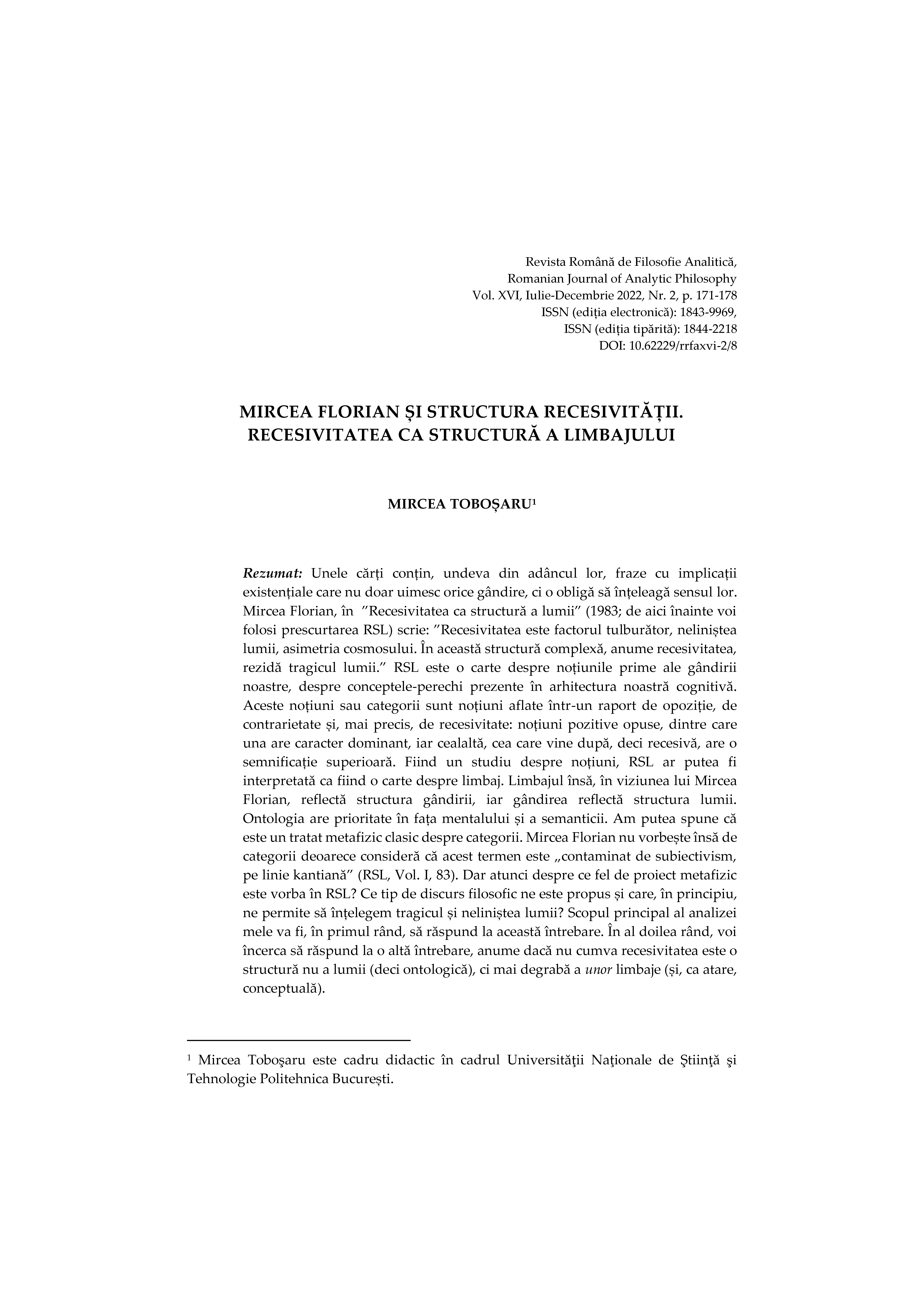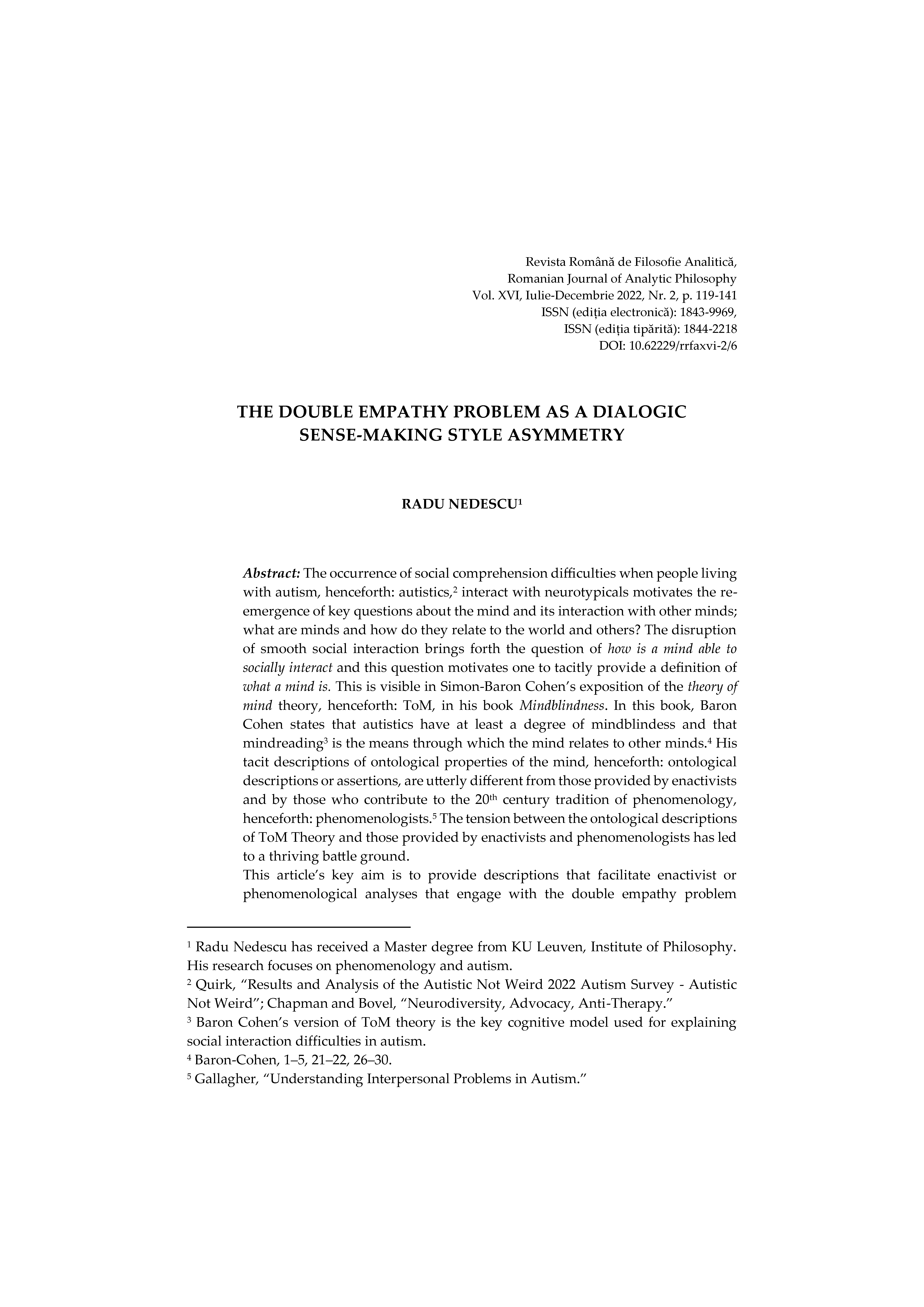About the Journal
The journal publishes articles in analytic philosophy broadly construed. Topics range from logic, philosophy of mathematics and epistemology to metaphysics, philosophy of biology, philosophy of cognitive science and philosophy of language, but is not limited to these areas. Submissions are subject to peer blind review. For issues in the past two years, more than 28% of submissions were published after at most two rounds of review. The journal primarily targets early career researchers in philosophy or doctoral students, but carefully analyzes each submission and is open to all collaborative projects, especially those coming from researchers in social sciences or humanities.
Current Issue
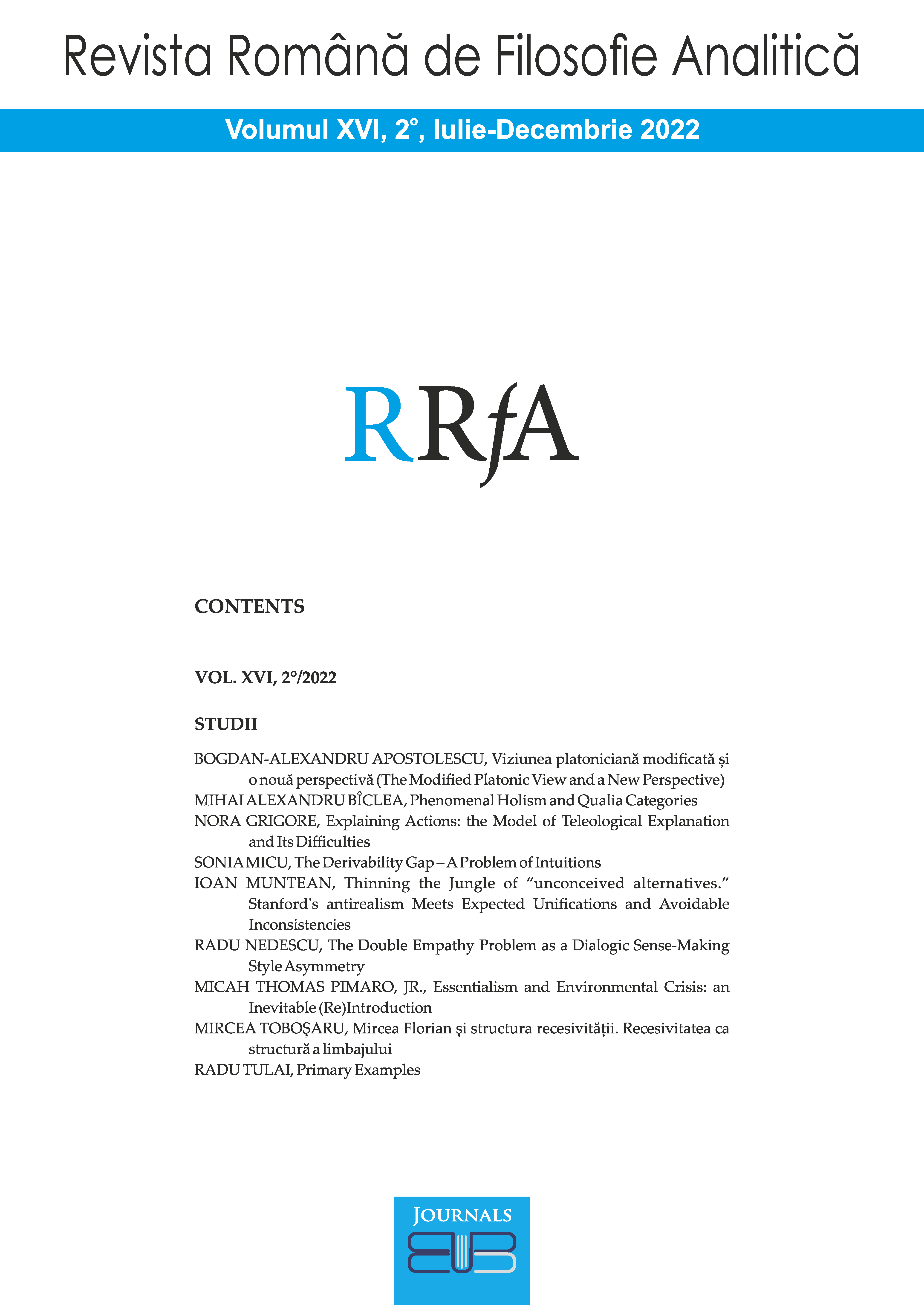
Biannual journal published by the Romanian Society for Analytic Philosophy, supported by the Faculty of Philosophy, University of Bucharest
Revista Română de Filosofie Analitică este fosta Revistă de Filosofie Analitică (2007-2011)

